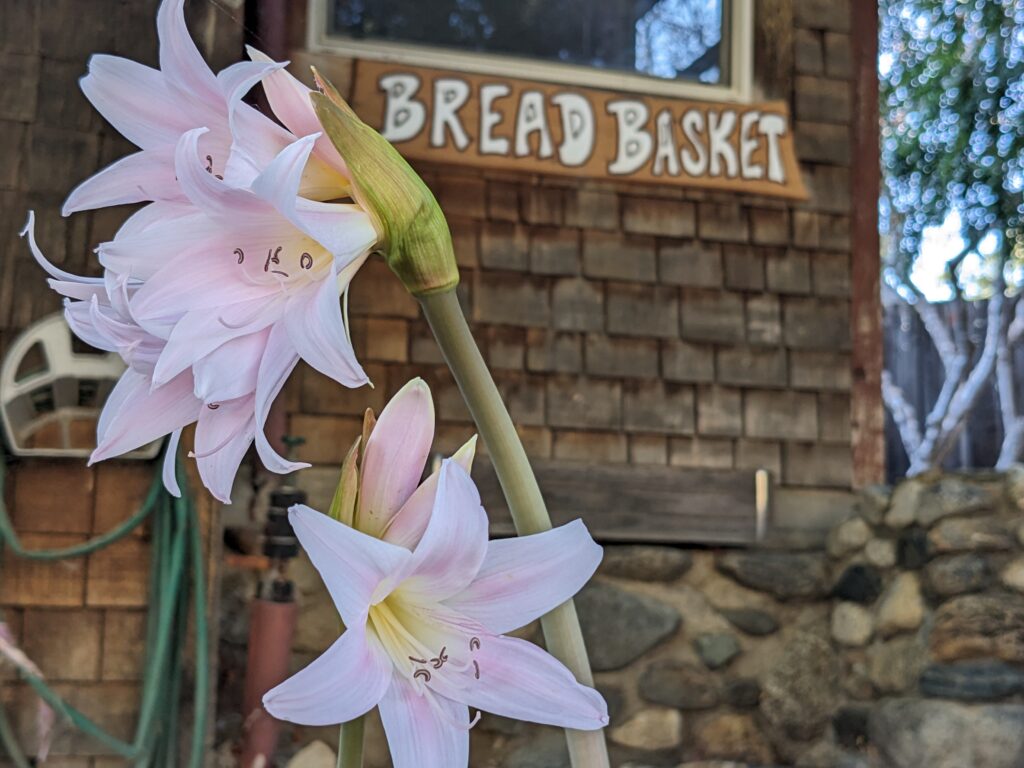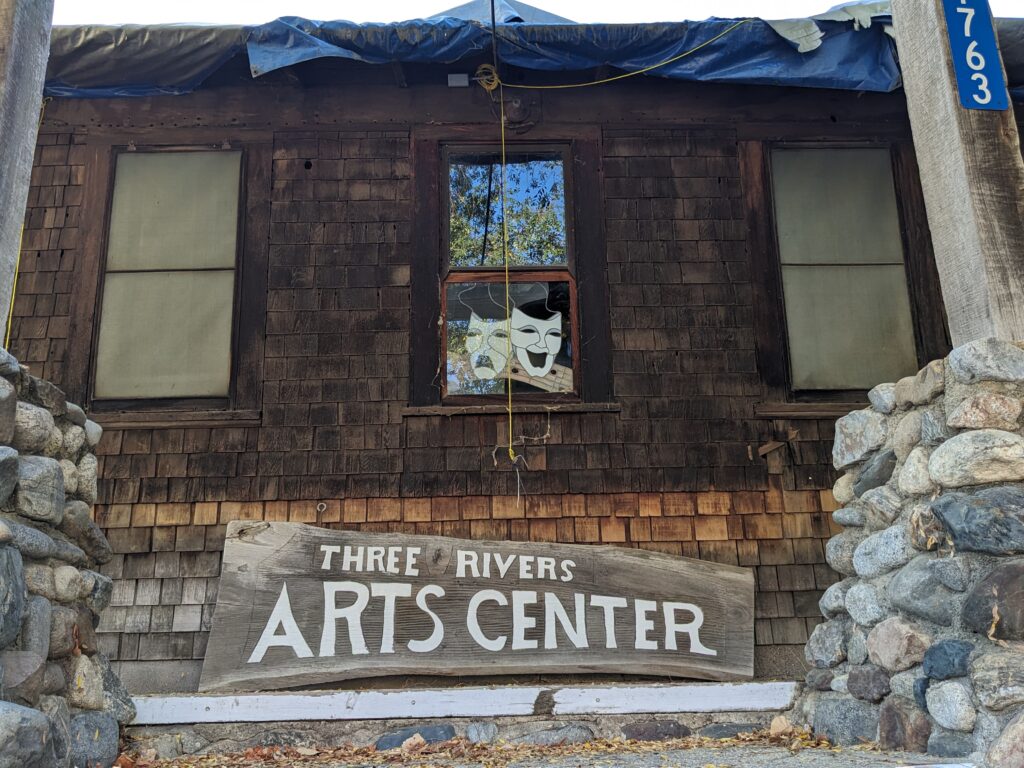
A driver pulls into the Three Rivers Art Center parking lot, holding out two fingers representing the number of families they are picking up for. A line of volunteers drop full-sized boxes of produce into the driver’s open side door. “You sure you don’t want another box? It all needs to be gone, or it’ll go bad,” calls a volunteer next to me after recognizing the driver.
For most of my childhood, I have grown up in the traveler’s utopia of Three Rivers. It is given the name from the three Kaweah River forks that flow snowmelt from the Sierra Nevadas to the ever thirsty crops of the California agricultural lands. Nestled between Sequoia National Park and the sprawling checkerboard of the Central Valley, it is a destination for many visitors escaping their daily hustle and bustle. The townsfolk consist of park employees, small shop owners feeding the mass tourists, and well-to-do retirees.
In reaction to COVID, the National Park closed, stemming the flow of visitors that kept our town’s economy afloat. Without the regular flow of income, economic hardships formed. To help provide needed support, local operations stepped up to ease the stressors. Through this effort, the local food bank was ramped up.
Worn out from social isolation, I started showing up for handout days, the only volunteer under 30, both at my local town’s food bank stationed in the local worn down Art Center, and at a wider-reaching food pantry and distributor called Food-Link. A day was similar at both food bank distributions: 30 or more cars would line up with their gaping trunks drooling in suspense for the volunteers to place in them tomatoes, milk, and corn.

As we chat with the driver, we dump in a couple more boxes of strawberries – a truly enormous proportion compared to what they can eat. But for us volunteers what other choice do we have? The Art Center does not have sufficient cold storage, and the produce cannot survive under the unforgiving dog day’s sun.
One dusty hot Wednesday morning the delivery truck plastered with Food-Link rolls in next to our sun-bleached Art Center. Volunteers crowd around on tiptoes like eager children on Christmas morning to see “what’s inside today.” When the delivery doors open, we see on the metal truck bed rolling mountains of produce, boxes strapped together, teetering from their own height and weight. A magnificent sight, this delivery is not unusual for the time but the quantity still left me feeling bewildered.
Looking down from where I am posted up on the truck, I can see a couple dozen awaiting cars. There is no way that our small community can use this copious amount of produce.
A couple miles down the road, Food-Link, runs a movable food pantry that is able to access rural communities that do not have their own food banks. You know the food truck is in town from the pop hits or mariachi music belting from a volunteer’s car door. Here we gave out measured allotments of nutritious produce, even a small box for many people is a God-send, taking the place of cheap chain burgers.
This juxtaposition of our well-to-do town with corn to spare fed to cows, while Farmersville, a local movable food-bank drop off left struggling families with only a ‘supplement of food’ to feed their kids. Was no one else seeing this waste?
“Hey don’t worry about it–we’re at the end of the line for this produce. We’re doing the food distributors a favor,” comments a sweaty Three Rivers volunteer, looking up to see a driver holding out three fingers.
